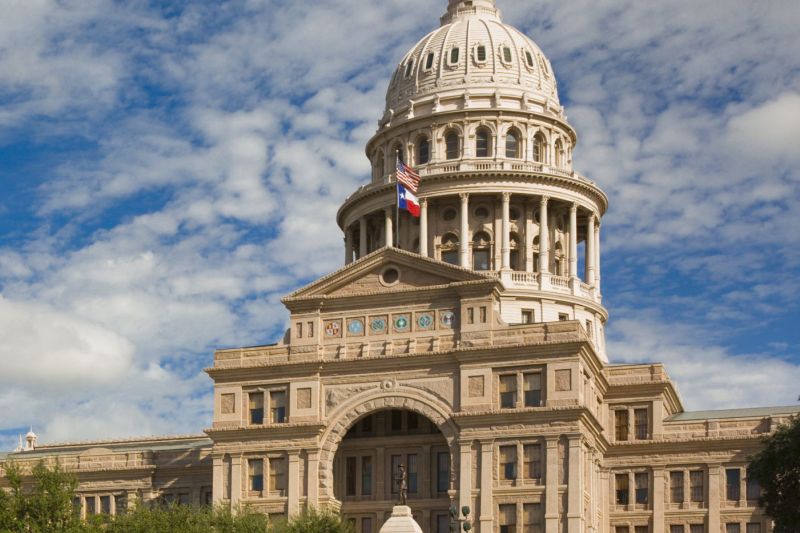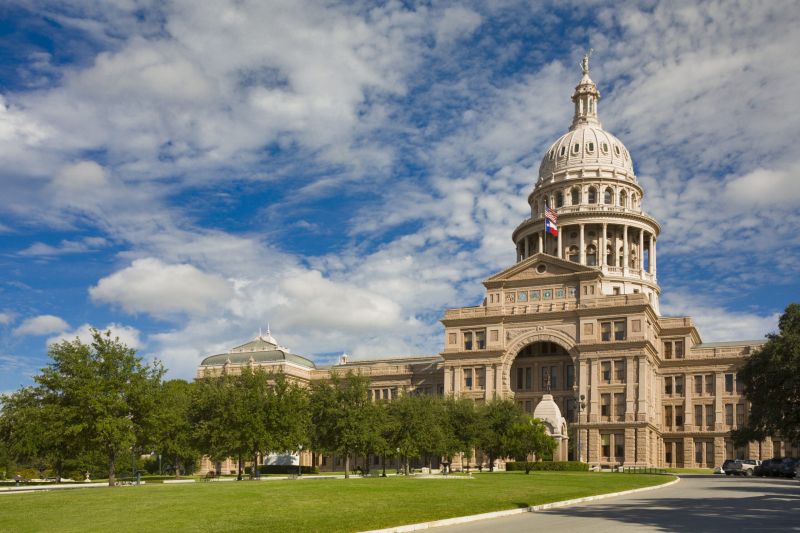Watch Our Texas Budget Briefing Webinar On Demand

At United Way of Metropolitan Dallas, advocacy plays a vital role in our mission to improve access to education, income and health so all North Texans can thrive. We bring together advocates from across North Texas to champion policies that expand opportunities and drive meaningful change in our region. Advocacy becomes especially crucial during the biennial Texas legislative sessions.
One way we empower our advocates is to ensure they understand the basics of how legislation happens in Texas. And the state budget is a vital component of the legislative process.
Recently our advocacy team, in partnership with the Dallas Regional Chamber (DRC), hosted a Texas Budget Briefing Virtual Lunch and Learn featuring Ursula Parks. Parks is a fiscal policy and budget expert with more than 25 years of experience with the Texas legislature, having developed recommendations for state agencies and institutions within all state government functions.
During the briefing, Parks gave a comprehensive overview of the state legislative budget process, the current surplus and the state fiscal policy outlook for this 89th Texas legislative session.
Read on for key takeaways from the webinar or click below to watch the video on demand.
Texas Budget Basics
The Texas biennial budget is the state’s primary financial plan, determining funding for public services, infrastructure and policy initiatives over the next two-year period. The budget’s impact extends far beyond financial planning—as it serves as the foundation for our legislative priorities.
The budget will influence key policy decisions in the 89th Texas legislative session by allocating resources to education, income and health—the building blocks of opportunity. Overall, the biennial budget serves as a policy tool, guiding legislative action and determining how Texas addresses both ongoing challenges and emerging needs.
To maintain decorum in the legislature, lawmakers follow a variety of fiscal parameters, such as the separation of powers denoted in the Texas Constitution: “No money shall be drawn from the Treasury but in pursuance of specific appropriations made by law: nor shall any appropriation of money be made for a longer term than two years.”
Internal controls also dictate how the legislature operates. For example, Texas’ legislature is historically fiscally conservative regardless of controlling party, members operate very strongly concerning local considerations, political ramifications play into their decision making, and there is an expectation of a balance of power among the three branches and between the House and Senate.
Exploring Our State’s Challenges
During our Texas Budget Briefing webinar, Parks emphasized that although Texas has abundant natural resources and relatively low cost of living and tax burden per capita, the state still faces significant challenges. Some of these include stagnant educational attainment, a complex tax structure, a high rate of uninsured patients in a stressed healthcare system, inadequate mental health services and urgent infrastructure needs, all of which could be addressed by the state budget.
Parks shared that the state budget is the legislature’s statement of priorities and that no other piece of legislation comes close in sweep, significance or long-term implication.
The State of Texas’ Budget
Currently, Texas is in a position of extremely high revenue but also extremely high spending. For the 2024-2025 biennium, the expended base (the amount of money that Texas is expected to spend) is $333 billion, which is a 17% increase from the previous year. This is an indication that both the House and Senate have identified a lot of big-ticket priorities that they intend to focus on this legislative session.
Another important function of the state budget is it directs how state agencies spend specific items of appropriation, provides funding for each new session’s newly enacted legislation, and sets state agency salary schedules. Parks explained that because the state budget is so consequential to the legislative process, it essentially follows a continuous cycle rather than a linear, orderly timeline. There is constant motion occurring in legislative offices and state agencies that will strongly influence the state budget for the following period. Oftentimes, agencies will scramble for a few months in the summer to implement the next biennial budget before the September 1 start date of the fiscal year.
Another major disruptor to a smooth and efficient timeline for the state budget is having an extraordinary number of special sessions, which can create discord in the overall process. Special sessions delay everything else from happening normally, creating a shorter interim period.
The legislature meets for only 140 days every two years, leaving 590 days between sessions—during which, a lot can happen. As a result, there are processes in place for state agencies to make modifications to how they spend money and for leadership to make modifications to how money is expended. For those specific modifications to happen, the legislature with power delegated to the legislative budget board and the office of the governor need to agree on how to affect those changes.
Budget Priorities
The budget includes some selected all-funds appropriation numbers that both the House and Senate put toward large new spending items. This includes $4.9 billion in public education, $3 billion in dementia prevention research, $2.5 billion on water, a personal attendant services wage increase to $1.8 billion, a film incentive of $450 million in tax credits and $5 billion for the Texas Energy Fund.
Advocate with Us
Together with hundreds of dedicated advocates, we’re speaking up for policies that directly impact education, income and health in North Texas. Advocacy is the best way to ensure the lawmakers who represent us understand how policy directly impacts people’s lives.
We are more than a month in the 2025 Texas legislative session, and we invite change-seekers like you to join our advocacy efforts. The more people we have speaking up with us, united, the greater the impact of our collective efforts.
Sign up for advocacy updates! Be sure you’re in the know about our ongoing advocacy efforts by signing up for our Advocacy Alerts and Policy in Brief newsletters. Sign up here.
Tags

Advocate for Meaningful Change
We make it easy to speak out about issues that affect our community. Sign up for our Advocacy Alerts and Policy in Brief newsletter, and we’ll let you know when and how to contact your elected officials to make the biggest possible impact.


